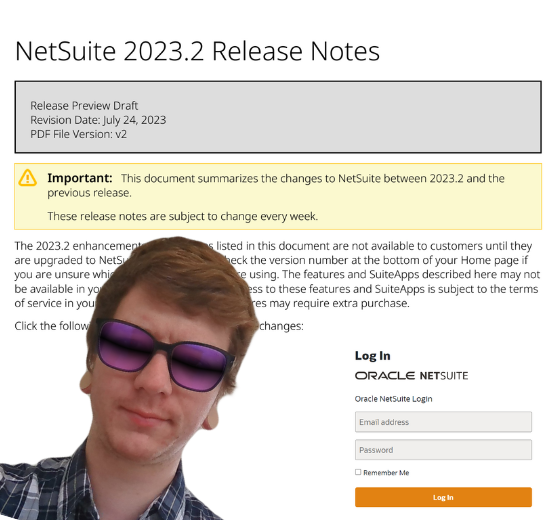While the pandemic has hit many businesses hard, the significant increase in online demand – from the first lockdown, through subsequent regional ones and the current national lockdown – has left a number of firms’ distribution functions busier than ever. Many have learned valuable lessons from the first lockdown in March, which saw them managing supplies and shipping on the hoof – not a sustainable and successful model. Retailers should now be in a better place to prepare for national or regional restrictions and the demand fluctuations they bring. But they must also continue to find ways of not only maintaining operational efficiencies but increasing them if they wish to see healthy productivity and profits.
For these firms to retain higher levels of sales in a viable way, they should not rely on an increase in staff – which is fraught with its own problems due to following social distancing guidelines – but instead work smarter and leverage best-in-class warehouse management and wholesale distribution technologies.
Automation is key to survival in a rapidly evolving landscape
There is no doubt that supply chains in these unprecedented times need to have built-in strategic agility and flexibility, which would be almost impossible to achieve manually. This is where automation comes in. Automating the key processes from payment and invoicing, through to order fulfilment and inventory updates and tracking, means businesses can get control and visibility of the complex web of disparate processes, cost-effectively.
Software that assists in this area, such as Enterprise Resource Planning (ERP) solution Oracle NetSuite, is enabling wholesale distributors to achieve the right balance between demand and supply. No firm wants to be in a position where sales are being lost due to stock not being available at the right time, while similarly, an overstock of products that exceed demand ties up warehouse space and cash flow. Trying to navigate these challenges manually, particularly during this period of seismic change in online retailing, is a real uphill battle.
Having demand planning features, coupled with advanced inventory management, will help retailers make the right decisions, and is crucial to achieving the optimal supply plan. NetSuite’s Demand Management feature helps with prediction of demand, based on a combination of historical data, open opportunities and manual sales forecasts, resulting in amazingly accurate forecasts. The Supply Management feature then kicks in, to balance demand and supply – automatically generating purchase, work and transfer orders based on customisable item record parameters. The key capabilities include multi-location supply planning and vendor management, which is particularly pertinent for those who may be delivering an omnichannel offering; running physical stores, a website, an app and possibly other online marketplaces, such as Amazon. Making sure the right amount of product is available for each, and that inventory location can be tracked for times when it may be necessary to move to online stores in times of lockdown.
Technology drives optimisation of warehouse management and order fulfilment efficiencies
Although sales might be up and you have a smile on your face, best practices in warehouse management need to be effected if optimal efficiencies and any kind of sustained growth is to be achieved. Oracle NetSuite offers radio-frequency (RF) scanning, directed putaway and picking that can be customised in line with the user’s strategies. Additionally, it offers advanced capabilities such as cycle count planning, wave management and real-time inventory updates – as well as the ability to integrate with shopping systems.
Having the right features to help with inbound and outbound logistics is a lifeline that retailers need to grasp right now. Streamlining the receiving process while achieving quality assurance is made effortless with Oracle NetSuite’s quick reminders and workflows – highlighting where orders are expected or overdue – and defined inspection plan settings help maintain product quality and reduce customer returns. When it comes to outbound logistics, the streamlined pick, pack and ship function in Oracle NetSuite means the complex workflow driven process is all automated so that once an order is entered and approved, the shipper is automatically notified. Operational efficiencies can be further increased with pre-defined preferred picking strategies that warehouse operators can easily perform on convenient mobile devices.
It is only a truly holistic approach to warehouse management and order fulfilment such as that offered by integrated cloud ERP solutions that can help retail businesses to stay ahead of the game.
Making the most of omnichannel opportunities
The proliferation of omnichannel sales has presented untold opportunities for wholesale distributors, while also throwing up a myriad of challenges. With orders coming through from online sales, mobile devices, smart speakers such as Alexa and social media channels – as well as store sales, managing this order stream and maintaining a seamless customer experience is no mean feat. Undoubtedly, this is unachievable without technology. A unified commerce platform bringing together everything (front and back end systems, sales and marketing, accounts and financials, plus order, supply and inventory management) for a full 360-degree view of the business is a necessity rather than an option for businesses having to scale due to pandemic stimulated growth.
Having accurate information across all customer touchpoints, in real-time, gives companies operating in an omnichannel retail environment true agility. Oracle NetSuite’s range of built-in, real-time dashboards can facilitate reporting and analysis on both summary and transactional levels. With just one version of the truth in existence, decision making can be both timely and highly informed.
Some retailers have been slow to adopt the technologies that the logistics sector has embraced and utilised, but with the advent of rapid disruption changing the sector, those experiencing success can no longer postpone digital transformation. Adoption of technologies that assimilate artificial intelligence and automated processes into the heart of a business facilitates a steady beat and healthy company.
If you’d like to understand more about the implementation of Oracle NetSuite’s ERP solution and how a 4* Partner like us approaches bespoke configurations for retailers and distributors – such as electronics giant Comet and boutique fashion brand Rixo – fill in this form and we’ll call you back.
Keep reading

What is a NetSuite implementation partner? How do you choose one?

Technology fit for total customer service in 2024

Retail and wholesale distribution: how to improve supply chains

Ditching Sage 1000: what you need to know from businesses that have done it

6 ways AI-ready Microsoft Dynamics 365 helps chartered associations serve members

6 retail and wholesale distribution challenges and how NetSuite solves them

The most exciting features in Microsoft Dynamics 365 2023 Release Wave 2

How to manage a new NetSuite Release: one expert's update process

What’s in NetSuite Release 2023.2?

